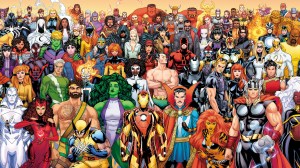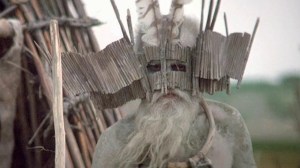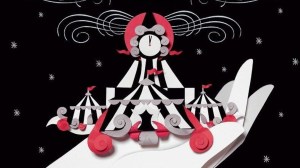Now that Hela has Ragnarok’d Asgard and Thor and Hulk’s latest adventure has released in theaters, fans are already anticipating the next movie on Marvel Studios‘ docket. And star Chadwick Boseman understands the significance of Black Panther.
Videos by ComicBook.com
The actor recently spoke with CNET about the film’s importance not just to himself, but to black people in the United States and across the world.
“It’s just this tremendous opportunity,” said Boseman, “not just for me but for all of us really to get out of our boxes. It’s not just black people getting out of their boxes. Everybody is excited about the opportunity to do something that we should have already done. People are excited about seeing new stuff, but I think they’re extra excited about seeing stuff they should have seen already.”
Boseman added that the film will incorporate “various ideologies,” weaving a complex tapestry that has yet to be seen in a major studio superhero film.
“It pulls from the blacks-in-science idea, from a nationalist idea, it pulls from a collective-world idea,” Boseman said. “There’s something that will influence people in a particular way. It took all of this time to come to fruition in a larger way, but now the world is right, the world is able to receive that. It’s just a special thing.”
He added that the significance of the character was so important to him, that when he received the offer there was “no way in the world you’re going to say no because there’s a lot of opportunity for magic to happen.”
Rise of the Black Panther

Even though Black Panther was created by Stan Lee and Jack Kirby in the pages of Fantastic Four #52 all the way back in 1966, the character’s profile has never been as high as it is now. What was generally regarded as a cult-favorite character has become an important cultural icon.
Boseman was asked if he missed having role models like T’Challa growing up.
“You don’t know what you’re missing if you haven’t experienced it,” Boseman replied. “People of African descent, most of us grew up accepting and loving Spider-Man. I still love Spider-Man. I still love the Incredible Hulk.
“I still have those characters that were white role models, superheroes, heroes — whatever you want to call it. You basically had no choice but to accept those. You might have created other superheroes in sports or in politics, but there was never that renowned, widely accepted superhero in the same way.”
Younger generations, Boseman pointed out, won’t have the same lack of exposure growing up.
“But you don’t know if you’ve never experienced it. In the same way, kids now [won’t] say, ‘There will never be a black president.’ There are kids that that’s all they know.”
Becoming a Role Model

The actor takes a lot of pride in his Marvel Studios role and the influence he has in children’s lives now.
“I love it. You see how much it means,” Boseman said. “There was one kid [fighting cancer] who used the Black Panther as sort of his inspiration. He saw himself as a Wakandan, he saw himself as having the spirit of Wakanda in his fight. The fact that he chose you, that’s the world he lives in. It does mean a lot.”
He spoke about Jack Kirby’s and Stan Lee’s role in creating the character, given that they were two white men writing and drawing stories about an African king.
“Yes, the idea came from Stan Lee, and it came at a time ironically that the totem of the panther was actually part of our revolutionary spirit,” Boseman said. “It was just something right about that time that these men were on that wavelength. What I think it speaks to is the fact that Stan Lee is just open enough to catching the revolutionary spirit, even as a white man.”
It’s obvious that Boseman understands the responsibility of playing the character and what it means, and given Marvel’s track record for success, Black Panther’s profile is only going to rise higher and higher.
Black Panther premieres in theaters on February 16, 2018.
[Embed id=27705]Black Panther (ComicMovie: black-panther)[/Embed]
‘








